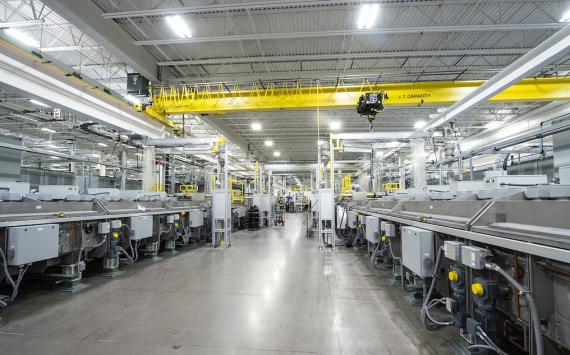
Chip centre
The Japanese government plans to allocate about $2.38 billion to establish a joint R&D centre with the US to develop next-generation 2-nanometer semiconductors. This was reported by the Nikkei newspaper.
The agreement on its establishment was reached in late July, when the heads of foreign policy and economic ministries of Japan and the U.S. in the format of "2 +2".
IBM, which former Economy, Trade and Industry Minister Koichi Hagiuda visited in May, is among the candidates to participate.
450 billion yen will be spent to provide manufacturing centres for advanced semiconductors in Japan. The amount spent on the effort, including 617 billion yen in the supplementary budget last year, will exceed 1 trillion yen.
The government has already approved subsidies for Taiwan Semiconductor Manufacturing, Kioxia and US-based Micron Technology to build factories in Japan that produce semiconductors needed for data centres, artificial intelligence and other advanced technologies.
370 billion yen will be used to stimulate the strengthening of supply networks for materials such as silicon wafers and silicon carbide.
The Ministry of Economy, Trade and Industry is expanding support for semiconductors not only because of their importance to economic security, but also because it sees the historic depreciation of the yen as an opportunity to attract investment.
The aim is to create an economic cycle in which regional employment and wage growth are triggered by large-scale investment.
The research centre is expected to be established by the end of the year. The project will involve the University of Tokyo, Japan's National Institute of Advanced Industrial Science and Technology, and the Riken Institute of Natural Sciences. Several companies will participate in the project, but they will be named at a later date.
The Japanese authorities plan to allocate around $3.07 billion in subsidies to companies setting up semiconductor manufacturing facilities. Another about $2.52 billion will be spent on strengthening the supply chain of materials needed for chip production, including silicon wafers and silicon carbide.
The spending will be included in the second supplementary budget for this fiscal year. The technology investment was previously announced by Japanese Prime Minister Fumio Kishida.








